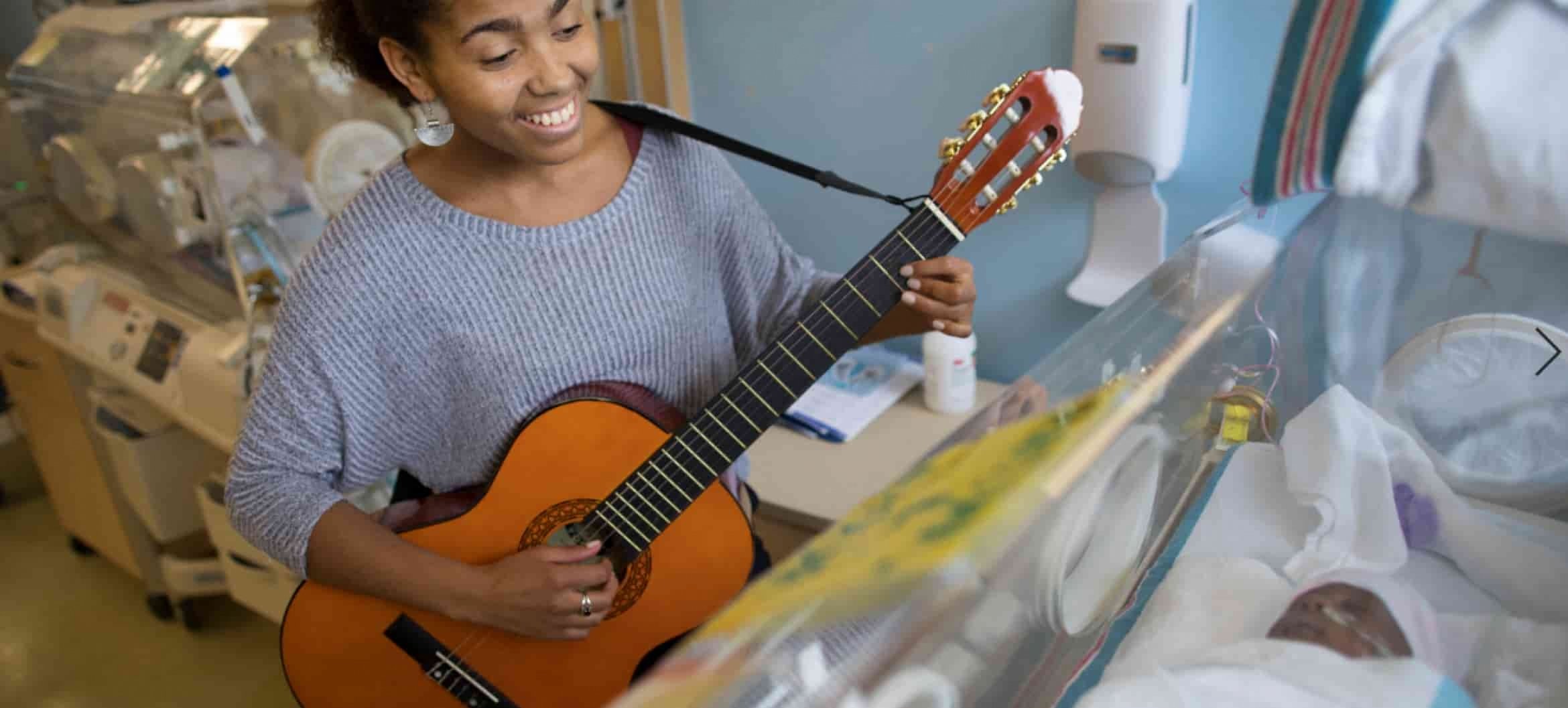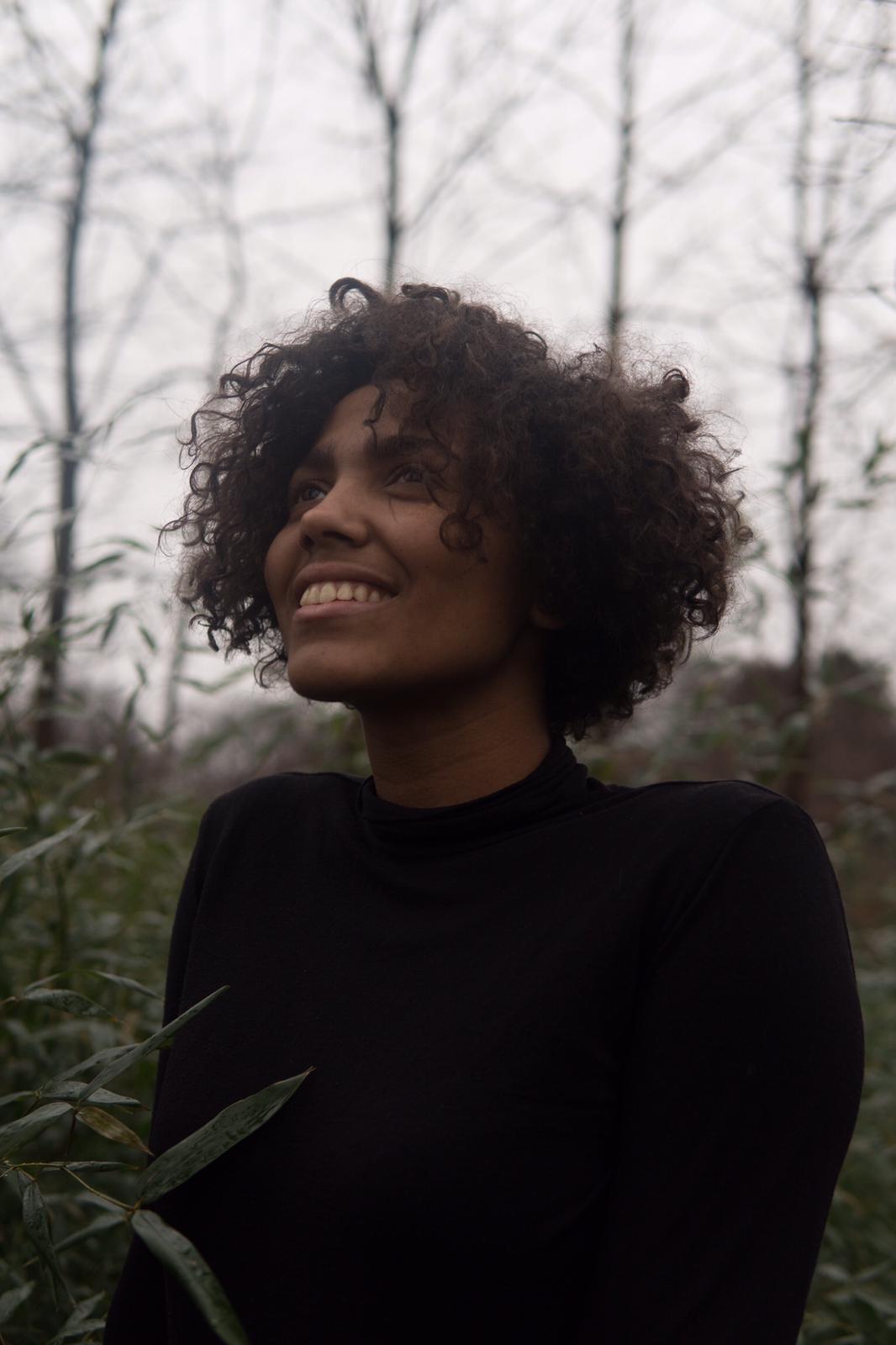Music for premature babies
You don't have to understand music to benefit from it; music has a positive effect even on premature babies. During her Music Therapy course, Lucina Akintaya completed an internship in a neonatal intensive care unit in New York. How was that experience and what did she learn from it?

If you want to study Music Therapy in Germany, you have to combine multiple courses in order to finally be able to take it as a master. So Lucina Akintaya, who is from Germany, looked into the option of studying Music Therapy in the Netherlands and found the ideal location in the Academy of Music in Enschede: “I really appreciated the fact that it was not a huge university. During the open day, I could really sense how well the small-scale atmosphere and the content of the course suited me. Here you go on internships right from the first year. It's great to learn all the facets of the profession in that way."
How did you know you wanted to study Music Therapy?
“I started playing piano as a child and had singing lessons as a teenager. But I don't just want to perform. That’s something a lot of Music Therapy students share: they don't always want to be in the spotlight. I'm very interested in the function that music can have. How you can reach people with music and establish contact with them, that speaks to me. I had already done two internships in Germany, one in psychiatry, the other giving music lessons in special needs education. That's how I knew that Music Therapy was for me."
Did you quickly decide which direction you wanted to go in within music therapy?
“Joanne Loewy, the head of the music therapy department at the Mount Sinai hospital in New York, came to the course as a guest lecturer. She told us about her work in the intensive care unit for premature babies (NICU). Her colleague Andrew Rossetti showed how he could react to all the noises of the equipment with a guitar and make music from it. If you closed your eyes, you experienced a very different soundscape than the sound of an intensive care unit. That really inspired me. After the seminar, I got in touch and they agreed that I could do an internship in New York."
The value of music therapy for the elderly is well known. But the idea of music therapy for premature babies will be unfamiliar to many readers.
“In New York they have already taken this a long way. Joanne Loewy has been doing it since 1994 and it is also increasingly being adopted in the Netherlands. Other countries still have some catching up to do and I hope to be able to contribute to that in Germany."
What exactly did your internship involve?
“I was pretty much thrown straight in at the deep end. I took seminars and worked a lot in the NICU. For instance, I supported babies with music to help regulate and calm their vital functions. If you follow the rhythm of a baby's breathing and heartbeat with an instrument or your voice, you immediately attract his or her attention. Say you slowly reduce that tempo, in most cases a baby will go with you. I was also able to support parents. Having a child in intensive care can cause feelings of helplessness. However, their presence is very important. The baby is already familiar with the voices of father and mother and they can help calm the child and strengthen the bond between parent and child. ”
Did you feel like a full member of the group as an intern?
“I was able to work very independently and they showed a lot of confidence in me. The doctors there are very familiar with the impact of music therapy. For instance, quite early on I was asked to make music during an operation on a child that responded well to music therapy. The surgeon asked me to give the child a sense of security through music."

Your graduation thesis was also about the importance of the cultural background in music therapy.
“There is a lot that is culturally determined: your musical preferences, how you relate to music and how you interact with others. Here in Europe, certainly in the Netherlands and Germany, it is always the culture of the 'white European' that is regarded as the norm. I have experienced for myself how complicated it can be if you don't fall within that norm. In New York, diversity is usually the norm. That was quite a discovery. It is important to be aware that you make contact in a different way if you share a lot in terms of upbringing, cultural background and preferences than if you have less in common. Through my thesis, I want to encourage music therapists to provide culturally sensitive therapy by seeing things not so much based on the ‘norm’ and more from the client's perspective."
How do you see that in practice?
“It's a lesson I learned myself the hard way. I suggested singing for a family just after the mother had given birth. As soon as I began, the father walked out of the room. It was an orthodox Jewish family and in that culture it is not permitted for a married man to listen to a woman sing. I didn't know that, but I could have made allowances for it. Or at least asked."
What have you done since graduating?
"I moved to Berlin in order to start work as a music therapist. Several hospitals have already shown an interest. There is a lot of work to do and music therapy has many positive, proven effects, so I'm confident things will work out."


